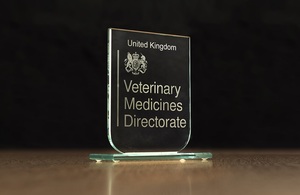Ukrainian Deputy Defence Minister visits Royal Navy mine-hunting training as part of UK visit
Ukraine’s Deputy Defence Minister has met soldiers and sailors training in the UK during a visit to see first-hand Britain’s ongoing support for his country.
The UK has taken a leading role in supporting Ukraine in its efforts to defend itself from Russia’s illegal invasion, providing more military equipment than any country other than the US, and launching a scheme to train 10,000 Ukrainian personnel.
Volodymyr Havrylov met with UK Armed Forces Minister James Heappey and visited parliamentarians to discuss what further support is required to meet the needs of the Armed Forces of Ukraine.
Both ministers then travelled to Scotland, where Ukrainian sailors are being trained by the Royal Navy to operate Sandown Class Minehunter vessels, ahead of the sale of two such vessels in a deal agreed last year under the Ukrainian Naval Capabilities Enhancement Programme (UNCEP).
Ministers Havrylov and Heappey spoke with trainees and the Royal Navy instructors, observing them practicing key skills at sea, such as weapon drills and damage control, whilst learning to operate the machinery on the vessels.
Armed Forces Minister James Heappey said:
The intensity with which the Ukrainian soldiers and sailors are training is something to behold. They work with the focus of troops who know they’ll be fighting in a war in just a few short weeks’ time.
Delivering training that matches that intensity and focus is not straightforward. The Royal Navy and the British Army are working long hours and drawing on all their operational experience to make sure their new Ukrainian friends are sent into combat with the best chance of victory.
Deputy Defence Minister Volodymyr Havrylov said:
I saw the brotherhood of Ukrainian and British soldiers working together to achieve a common goal – strengthening the combat capabilities of the Ukrainian army.
We are very grateful to the government and people of the United Kingdom for their invaluable contribution to Ukraine’s success in repelling the Russian aggressors.
The two ministers also visited one of the locations where Ukrainian soldiers are being trained in essential battle-winning skills in a major new UK-led military programme.
More than 1,000 UK service personnel are involved in the programme, which is taking place at military sites across the North West, South West and South East of the UK. Each course will last several weeks and will be conducted by elements from 11 Security Force Assistance Brigade.
The training will give volunteer recruits with limited military experience the skills to be effective in frontline combat. Based on the UK’s basic soldier training, the course covers weapons handling, battlefield first aid, fieldcraft, patrol tactics and the Law of Armed Conflict.
The visit of Ukraine’s Deputy Defence Minister came in the same week as Defence Secretary Ben Wallace revealed plans to supply scores of artillery guns, and hundreds of drones and anti-tank weapons to Ukraine in the coming weeks.
